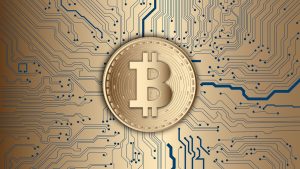Decentralized finance (DeFi) is reshaping people’s ideas of traditional financial systems. With the concept of cryptocurrency rising and the advent of the crypto exchange landscape, DeFi has emerged as a hot topic, offering new opportunities and challenges for investors and enthusiasts alike.

So, what exactly is DeFi, and how does it differ from conventional financial instruments? Learn about the intricacies of this intriguing ecosystem and how it can affect your personal and professional finances.
Defining DeFi
Decentralized Finance, or DeFi for short, refers to a blockchain-based financial system that operates without traditional intermediaries such as banks or brokerage firms. Instead, DeFi harnesses the power of smart contracts, decentralized applications (dApps), and blockchain technology to enable peer-to-peer financial transactions.
DeFi aims to democratize access to financial services, allowing users to participate in activities like lending, borrowing, trading, and earning interest permissionless and transparently. Compared to traditional finance systems, DeFi offers several key advantages.
DeFi is open to anyone with an internet connection, effectively eliminating barriers to entry that may exist in traditional financial markets. DeFi transactions are executed on a public blockchain, giving users full transparency. Furthermore, the decentralized nature of DeFi means that users have full control over their assets at all times, reducing the risk of third-party manipulation.
What Are DeFi Components?
DeFi Components form the backbone of the decentralized finance ecosystem. They are made up of a series of essential elements, including the following:
Smart Contracts
Smart contracts are self-executing contracts with the terms of the agreement directly written into code. These autonomous programs facilitate trustless transactions by automatically enforcing the terms of an agreement without the need for intermediaries.
In DeFi, smart contracts are used for a wide range of applications, including lending, borrowing, trading, and more. Platforms like Ethereum have played a pivotal role in enabling the creation and execution of smart contracts within the DeFi ecosystem.
Decentralized Applications (dApps)
Decentralized applications (dApps) are software applications that run on a decentralized network of computers rather than a single server. In DeFi, dApps serve as the ecosystem’s building blocks, allowing users to interact with various financial services in a decentralized manner.
Popular DeFi dApps include decentralized exchanges (DEXs), lending platforms, and yield farming protocols. Each offers unique functionalities and opportunities for users to engage with the DeFi space.
Crypto Exchanges and DeFi
Within DeFi, traditional centralized exchanges are giving way to decentralized exchanges (DEXs), providing users with a peer-to-peer trading experience without intermediaries. DEXs utilize smart contracts and liquidity pools to facilitate trustless and secure transactions, allowing users to trade cryptocurrencies directly from their wallets.
These platforms offer enhanced privacy, security, and control over assets, making them popular for users looking to engage in DeFi trading activities. Using DEXs, participants can swap tokens, provide liquidity, and participate in decentralized finance without relying on a centralized authority.
DeFi Protocols
DeFi Protocols represent the robust frameworks that drive decentralized finance, offering users a range of innovative financial solutions within the blockchain ecosystem. These protocols enable secure borrowing, lending, and yield optimization through autonomous smart contracts, eliminating the need for traditional financial intermediaries.
Decentralized Lending
Decentralized lending protocols enable users to borrow and lend digital assets without a traditional financial intermediary. Platforms like Compound and Aave allow users to utilize their cryptocurrency holdings as collateral to borrow funds or earn interest by providing liquidity to the platform.
These protocols operate autonomously through smart contracts, ensuring transactions are executed securely and transparently. Decentralized lending has opened up new avenues for users to access capital or earn passive income in the DeFi ecosystem.
Yield Farming
Yield farming, also known as liquidity mining, is a DeFi practice that provides liquidity to decentralized protocols in exchange for rewards. Participants can lock up their tokens in liquidity pools to facilitate trading on decentralized exchanges and earn tokens as an incentive.
While yield farming can be lucrative, it also carries risks such as impermanent loss and smart contract vulnerabilities. By participating in yield farming, users can optimize their cryptocurrency holdings and earn additional rewards through innovative DeFi protocols.
The Continuing Evolution of DeFi
DeFi is shifting the way people think about finance, offering new possibilities for individuals to access financial services decentralized and transparently. From smart contracts to decentralized applications and innovative protocols, DeFi opens up a world of opportunities for users to participate in the growing ecosystem of decentralized finance.
While risks and challenges exist in this space, staying informed and practicing responsible investment strategies are key to effectively navigating the world of DeFi. Embrace the opportunities DeFi has to offer, but tread carefully with a keen eye on risk management and due diligence as you explore the fascinating world of decentralized finance.
